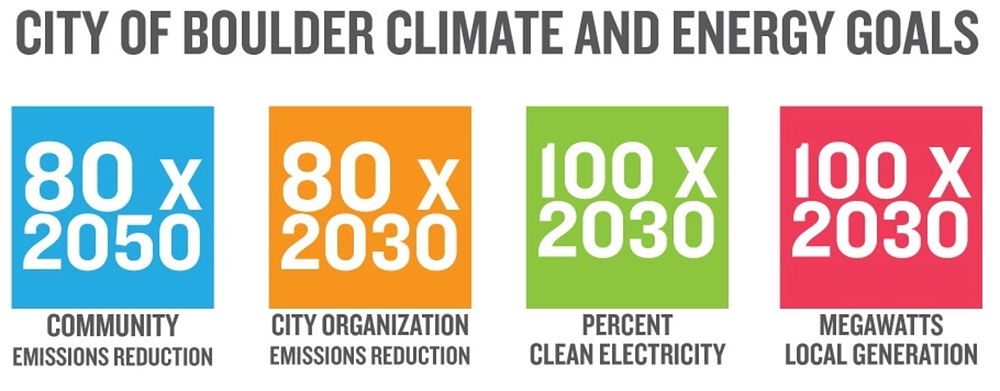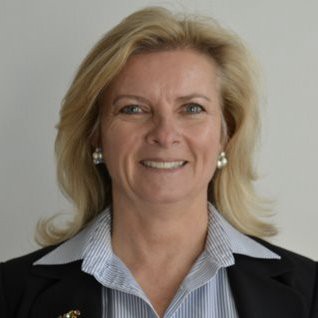Boulder’s effort to take its energy future into its own hands by establishing a municipal electric utility is decades in the making, and, maybe you agree, difficult to follow. Reading the great, exhaustive scenes of the municipalization epic play out in The Daily Camera’s pages and elsewhere leaves a head spinning, notwithstanding the stellar reporting and writing of reporters such as Alex Burness and Erica Meltzer.
It’s a tortuous story that embodies the Boulder spirit: bold, ambitious, quixotic.
Colorado’s three-member Public Utilities Commission concluded a nine-day hearing on Monday in which Boulder and Xcel Energy, which delivers electricity to Boulder now, laid out their arguments related to Boulder’s interest in taking over the latter’s within-city assets to operate its own electric utility.
Boulder’s currently on a dual track: pursuing municipalization while also negotiating with Xcel to adapt its services to meet city goals and continue with the energy giant as an electricity consumer.
The PUC said it will render a decision sometime in mid-September, at which point condemnation costs, and what Boulder voters may be asked to consider in a potential November ballot measure, will become clearer.
Here’s a high-level explainer.
Why municipalize?
Boulder has discussed controlling its energy distribution through operating its own electric utility since the 1960s. Back then, cost-savings and undergrounding of transmission lines were big factors.
In the aughts, the effort reared its head again, this time driven by the winds of decarbonization: reducing emissions and generating electricity used in the city from renewable sources became the rally cry. Last December, that swell, buoyed by a tax voters approved in 2011, turned into a full-force gale when the Boulder City Council formally adopted the emissions and renewable energy targets shown in the image below.

Based on research and cost analysis, the city feels a Boulder-operated utility will not only help it reach these goals but also reduce electricity costs for Boulder residents, savings which can be used to pay down the debt required to condemn Xcel assets, if that route materializes, and for a variety of other uses.
Colorado’s constitution gives cities the right to municipalize, though doesn’t outline how, which explains Boulder’s trying path. No cities have municipalized their electric systems since 1974, The Daily Camera’s Alex Burness wrote in April.
“If Boulder can’t do it,” Boulder councilmember Matt Appelbaum said at the time, “we’ll know that nobody can do it.”
Players
Boulder voters: Boulder residents voted in 2011 and 2015 to approve and then extend a Utility Occupation Tax that funds the municipalization exploration, which has brought in over $1.9 million each year since 2011. The city has spent more than $12 million on the effort so far. They’ll likely vote on the matter again this November.
Boulder City Council: The Council’s set to make a decision, currently scheduled for mid-2019, about whether to continue the municipalization process. The cost to acquire Xcel assets plays a big factor in the Council’s — and Boulder residents’ — ongoing support; if it’s over a voter- and city charter-set limit of $214 million, the Council could look to scuttle the muni ship.
Boulder’s Energy Strategy and Electric Utility Development department: Funded by the utility tax Boulder residents initially voted into being in 2010, this city department handles the planning for the municipalization effort, including modeling, forecasting and negotiating with Xcel Energy. The city estimates the condemnation price will settle out between $150 million and $214 million, which the city would look to finance by issuing a bond. If the amount turns out to be above the upper range — Xcel suggests it could cost as much as $900 million! — the municipalization bid is in jeopardy.
Xcel Energy: Xcel Energy, and an Xcel predecessor, has provided electricity to Boulder for decades. The Minneapolis-based electricity and natural gas firm, listed on the New York Stock Exchange with a market cap of over $24.3 billion (as of August 7), serves customers in eight western and midwestern states, including Colorado, of course. It spent nearly $1 million in a campaign to kill the muni effort in the runup to the 2011 vote. Xcel Energy has reported that renewables make up 22 percent of its electric portfolio.
Colorado Public Utility Commission: The three-person commission completed a nine-day hearing at its Denver headquarters on Monday, August 7. Boulder and Xcel presented their cases around Boulder’s desire to condemn electricity assets owned by Xcel within Boulder city limits. The PUC is expected to decide whether it approves the condemnation and under what conditions, if any, sometime in mid-September.
CenturyLink: CenturyLink owns roughly 1,800 electric poles on the city’s west side. The city, apparently, hasn’t opened talks with the firm yet about condemning them.
IBM, CU and other big area electricity consumers: CU and City have agreed on a plan to deliver electricity to the university should municipalization see daylight; IBM’s not happy about the movement, but is apparently open to a five-year trial if the city does indeed take over electric utility operations. If things don’t go well, IBM threatens to relocate its Gunbarrel campus.
Recent Timeline
August 2017
- PUC hears the case between Boulder and Xcel Energy. It expects to render a decision in mid-September on whether it approves Boulder’s acquisition of Xcel assets through condemnation, and, if so, under what conditions.
To state the very obvious, Koncilja seems very uncomfortable with Boulder's plan. Moser a little less so. Ackermann seems most sympathetic.
— Alex Burness (@alex_burness) August 4, 2017
April 2017
- City Council votes against putting a settlement option with Xcel on the 2017 ballot and for continuing the municipalization press.
March 2017
- Xcel Energy presents settlement offers to Boulder; City Council decides 6–3 to bring the issue to the PUC instead of accepting one of the offers.
December 2016
- City Council formalizes aggressive citywide emission and renewable energy targets, making municipalization a more poignant issue.
November 2015
- Boulder residents vote to extend the utility tax established in 2010 — not the increased tax voters approved in 2011 that primarily fuels the municipalization effort — to Dec. 31, 2022.
July 2015
- Boulder files application with the Colorado Public Utilities Commission for approval to condemn Xcel’s Boulder electric utility assets.
November 2013
- Boulder residents support the municipalization effort, approving a city charter amendment that outlines the effort, with conditions, at a ratio of 2-to-1 over an Xcel-backed amendment. Voters cap the debt the city can take on to fund condemnation of Xcel assets at $214 million.
June 2012

- Boulder hires Heather Bailey to oversee the municipalization effort as head of the city’s Energy Strategy and Electric Utility Development department. She becomes the city’s highest-paid employee at $250,000 per year, plus a $31,000 yearly housing allowance.
Nov. 2011
- Boulder residents vote to authorize City Council to pursue municipalization with certain conditions in place. Residents vote to increase the Utility Occupation Tax and extend it to Dec. 31, 2017. Measure passes by a little over 1,000 votes.
- Advocates spent $1.07 million in attempt to sway the vote, with Xcel supplying $960,689 of the $967,068 that went to oppose the measure.
Nov. 2010
- Boulder residents vote to approve a Utility Occupation Tax, a tax on companies supplying electricity and natural gas to the city and residents. This kicks off the current municipalization effort by establishing the funds for the city to begin exploring operation of its own utility.
2007
- To give teeth to 2002’s resolution in support of the Kyoto Protocol, Boulder voters approve a “Climate Action Plan Tax,” making Boulder one of the first cities — if not the first — to pass a “carbon tax.” Residents, commercial businesses and industry pay a tax on the amount of electricity they use, which translates to an annual average of $21, $94 and $9,600, respectively.
2002
- Boulder passes a resolution in support of the Kyoto Protocol, which set a goal of slicing greenhouse gas emissions to 7 percent below 1990 levels by 2012.

